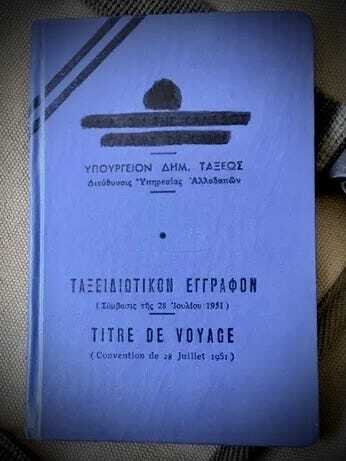On Literature and Immigration
 My refugee travel document 1977
My refugee travel document 1977Immigration is a hot and highly controversial topic these days. It affects me deeply and directly, as I am an immigrant. I came to the US in 1977, lawfully, from communist Romania. Very young at the time, I followed the clearly defined steps of the “third country program.” I asked for political asylum in Greece, and, guided by a very nice and kind lady, a representative of the United States Catholic Commission, I applied to be admitted to the US at the American Embassy in Athens. After a successful background check, a medical checkup — no syphilis or TB — and with a letter from my US sponsor, four months later I was granted refugee status, along with a conditional green card which gave me the right to work. Many people from communist countries who wanted to come to America benefitted from this program. There was no drama and no invasion, just a reasonable, well-organized approach which benefitted both the immigrants and the United States. Five years later I became a US citizen.
The immigration experience is often at the center of my writings. My heroes are people who have the courage to overcome the fear of the unknown and who struggle to adapt to their new country and culture. They take a leap of faith in search of political and intellectual freedom, and material wellbeing, despite the heartbreak of leaving beloved family and friends behind.
My new novel, “The Last Patient,” reflects this struggle between a cherished past and an uncertain future. The desire to escape communism for the sake of personal freedom and abundance of opportunity permeates the pages. Toward the end of the novel, my characters, by now safely settled on this side of the Atlantic, still look for comfort in the mantle of memories of the old country and of the loved ones left behind.
The prize of America is not without sacrifice.
[image error]


